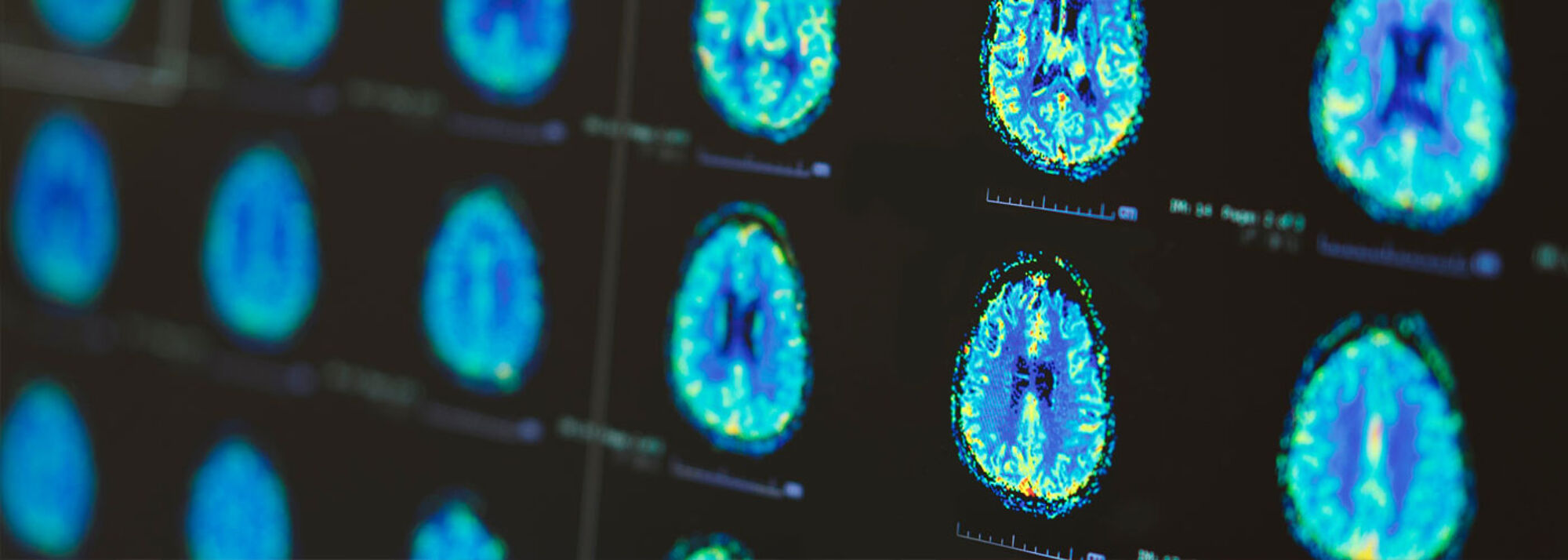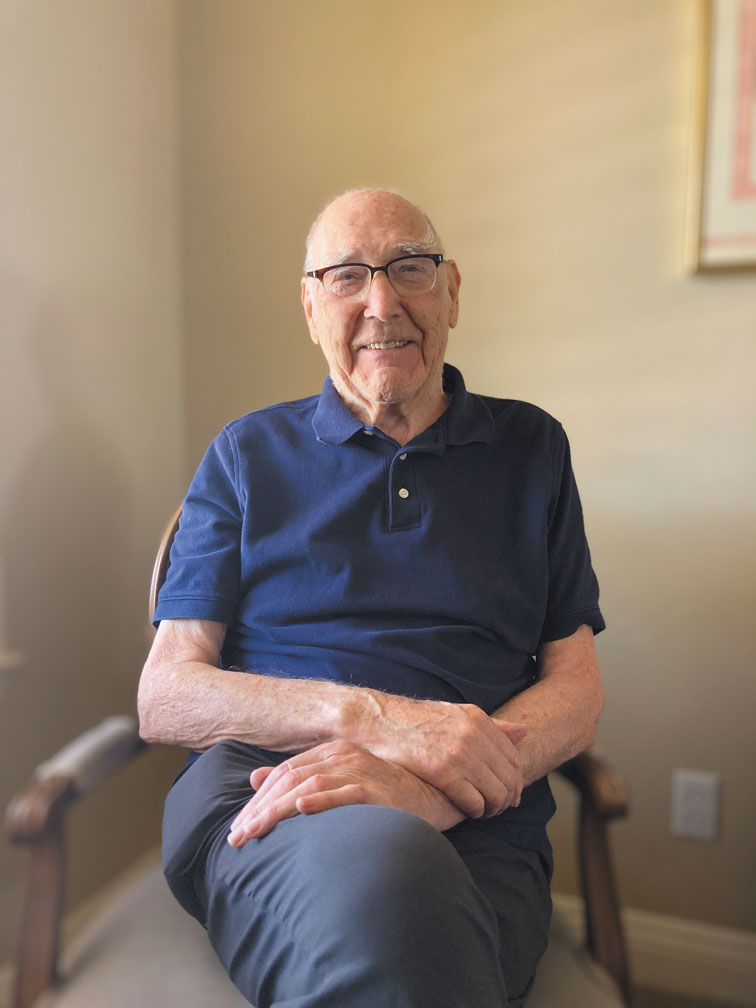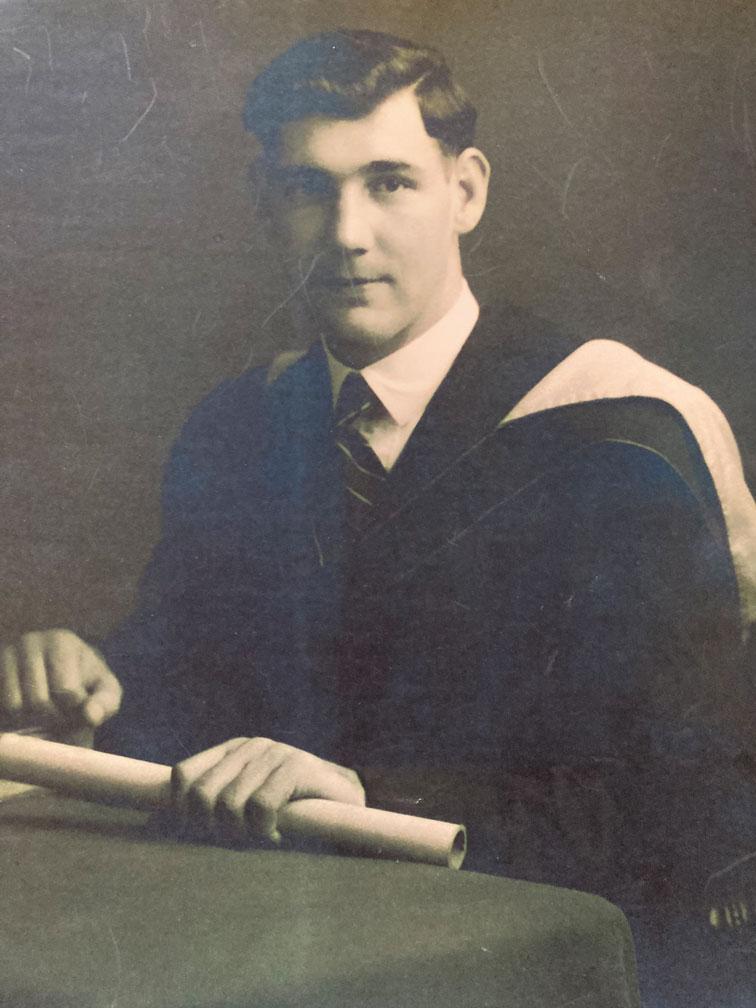
Leaving a legacy for psychiatry
Professor George Simpson (BSc 1948) made a highly significant gift of $2m to the University in 2021 to help improve our understanding of the neurological basis of psychiatric disorders, as well as a generous provision in his will of $6m. These gifts will impact research in his field for many years to come.
More than seven decades after he graduated from UofG, Professor George Simpson is giving back to the institution that set in motion an eminent career in biological psychiatry. The remarkable long life of Professor Simpson has come full circle. Born in Pennsylvania in 1926, George moved to Scotland as an infant and spent his childhood here, gained his first degree, in biochemistry, at UofG, then began a career that took him to Liverpool, Canada and back to the USA, which he made his permanent home. George is now Emeritus Professor of Research Psychiatry at the University of Southern California.
"AJ Cronin got me interested in medicine when I was a boy in Scotland,” he says. “One day in high school, I was reading Cronin, a teacher saw and asked me if I was going to be a doctor. At that moment, I didn’t really feel I could cut it then – but maybe my teacher did?"
AJ Cronin (MBChB 1919) is one of our most prominent medical alumni, as well as being a celebrated novelist best known for The Citadel and a novella that inspired the long-running TV series Dr Finlay’s Casebook.
George remembers fondly the lecturers and researchers he worked with while at UofG. “I had fun at Glasgow,” he says. “Physics was more difficult for me than chemistry, but some of the lecturers really grabbed you and you would listen attentively. Medicine has changed since then – biochemistry, physiology etc will all be very different, but I’m sure the clinical experience in Glasgow now is very good."
His early loyalties were divided between paediatrics and psychiatry: “At medical school, I was either going to do paediatrics or psychiatry. I didn’t particularly like the consultant in paediatrics, so I chose psychiatry. I wrote a very short letter to McGill University in Montreal and got a cable back, accepting me.”
I’m probably best known here and abroad for a rating scale I developed for the side effects of drugs. If you were testing new drugs, you had a therapeutic outcome, but you also had side effects, and there wasn’t anything to measure those. So I just made up a scale, it was published in the early 1960s, and it’s still being used in clinical trials.
The career path that George originally planned was to spend some time working in Canada and the USA before returning to the UK. “But when I arrived in New York,” says George, “and started working at what was one of only three research units in psychiatry in the country at the time, it felt as though I’d been there for years. I could have gone to London, but I kept postponing it. Then, eventually, my chief nurse said I should sit the medical exam, so I ended up staying in the USA.” George’s generous donation of $2m makes possible the creation of a number of Inger & George M Simpson Fellows at the University, working in the field of biological psychiatry. The first three started work in 2022:
- Dr Rhona McGonigal brings cutting-edge neuroscience laboratory skills, working on the neuroimmunology of peripheral nerve disease
- Dr Deepika Sharma, who has excellent immunology expertise, joins UofG from Johns Hopkins University.
- Dr Liliya Andrianova will enable the University to carry out experiments using electrophysiology and opto/chemo genetic techniques
The Simpson Fellows will look at how the brain cells communicate with each other...and what might ultimately be the mechanism of somebody developing say, schizophrenia or some other psychiatric disorder.
Part of George’s gift also supports the University’s first Inger & George M Simpson Scholar. Kirstyn Gardner is a second-year student who completed a degree in anatomy prior to coming to Glasgow to study medicine. She is working on a project designed to explore how individual brain cell populations react to a viral 'insult' – the cause of a physical or mental injury.
George’s substantial support for the careers of young scientists and clinicians at the University will ultimately create a network of highly trained researchers and help advance our understanding of a multitude of complex psychiatric conditions – a legacy with impact. And to what does he credit his longevity? “When people ask me how come I’ve lived so long, I tell them, well, I only drank good Scotch! I just feel that it’s my genes,” he says. “The best thing I ever did was to stop smoking when I was 20, for a bet of half a crown with my brother. That was the best half-crown ever.”
Find out more about Leaving a gift in your Will

Professor George Simpson today.

Professor George Simpson on his graduation day.

